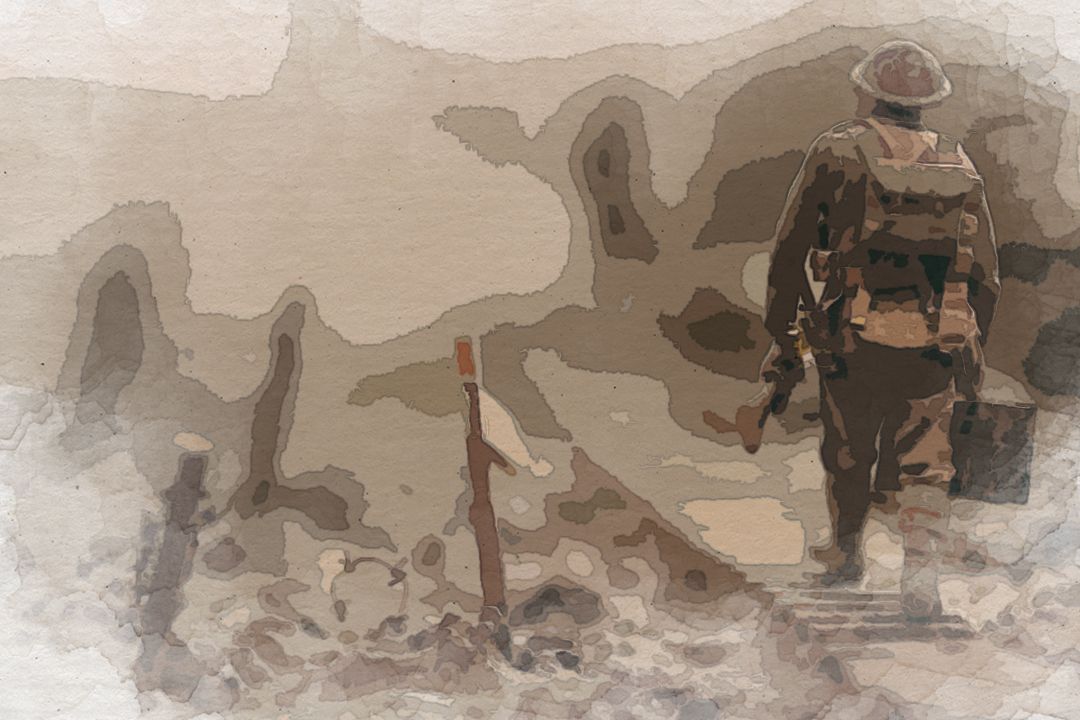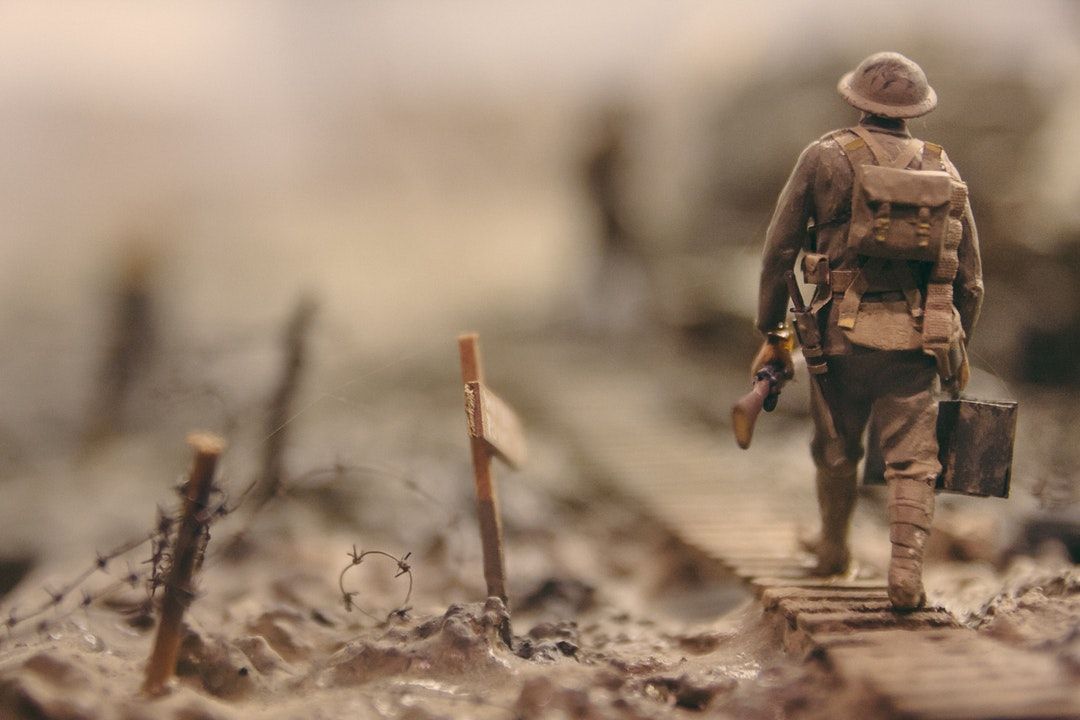They Don't Have An Army. Duh!

If You Want to Be All That You Can Be, Join The Army
Days melded into weeks, and the village’s laughter at Alexander’s antics grew familiar, a comforting echo that spoke of simpler times. However, the humor that once felt like a warm cloak began to chafe, the jokes stretching thin. The relentless mirth left a hollow space that echoed with unspoken yearnings for something beyond the paper-thin facades of village life.
Sophia, with her astute observations wrapped in dry wit, became a mirror for Alexander’s introspection. Her words often found their mark, a gentle prod to his conscience amidst the farce. She had once joked that the library was a cradle for sleeping epiphanies, waiting for a nudge to wake them into actions. Alexander found this thought nestling into his reflections.
One evening, as Alexander recounted the day's follies to her, Sophia regarded him with a blend of amusement and a new, somber clarity.
If you deliberately plan on being less than you are capable of being, then I warn you that you'll be unhappy for the rest of your life.
— Abraham Maslow (1908-1970)
Her words were a cold splash of stream water on his face, sobering. For all his jests, Sophia’s quoting of Maslow unearthed a truth he had skirted around in his performances. Was his act of the village jester, in truth, a deliberate choice to be less? Less challenged, less fulfilled, less himself?
The quote hung between them, a challenge cloaked in concern. Alexander found himself unable to conjure a witty retort, to spin it into a lighthearted jest. It was as if Sophia had handed him a mirror, and for the first time, he did not care to glance at the reflection with a smirk.
It started with small changes; the joviality that marked his mornings took on a more sincere timbre. He volunteered to help the village in ways he hadn't before, repairing fences without a punchline, delivering groceries with more smiles than jokes. The children noticed first, whispering that Alexander’s stories now had heroes who did more than just win—they grew.
His comedic battles with garden tools were replaced with earnest discussions at the village meetings, where his voice, once raised in jest, now spoke of community and care. Sophia watched this transformation, her eyes reflecting a mix of pride and the quiet satisfaction of a librarian whose recommended book had found a keen reader.
As Alexander’s jests faded into earnest endeavors, he realized that he had been a paper tiger in his own narrative—formidable in appearance but lacking in substance. Sophia’s words had been the nudge, awakening the epiphanies that slumbered in the cradle of his contentment.
The poster that once served as a prop for his comedy now stood as a reminder of the path he was carving for himself. It was no longer about joining an army or seeking adventures in distant lands. It was about being all that he could be, right there in his village, in the hearts he touched and in the lives he enriched with sincerity rather than satire.
As the village witnessed Alexander’s evolution, they realized that true courage didn’t always roar. Sometimes, it was in the quiet strength of being more than what one had planned to be, of facing the paper tigers within, and transforming them into tales of genuine valor.
Alexander’s life in the village was a caricature of contentment, his days filled with jests and his nights with stargazing. The ripples of laughter he sent through the streets were as much a part of the village as the old oak in the square. He had a whimsical way of shrugging off the earnestness of life, turning the mundane into a stage for his comedy. The war, to him, was a distant thunder, a backdrop for his playful mimicry.
“If You Want to Be All That You Can Be, Join The Army,” the poster proclaimed, and Alexander read it aloud daily, adding flourishes and dramatic pauses, turning the recruitment call into a performance that had the villagers chuckling. He was the jester, making light of the heavy promise of transformation through service.
His escapades were numerous. Once, he staged a faux battle with garden tools, casting the pitchfork as the villainous ‘General Grapple’ and the shovel as the heroic ‘Sergeant Shovel’. Children gathered, giggling as he narrated his mock-heroic saga, his voice thundering over the sounds of clanging metal.
“Alexander, you turn even the gravest matters into farce,” chided Sophia, the librarian with a sharp tongue and sharper intellect, one evening as he held court outside her window.
All reactionaries are paper tigers.
— Mao Zedong (1893-1976)
These words, quoted from the depths of a history book, were met with a momentary pause in Alexander’s theatrics. The metaphor was amusing, and he laughed, picturing himself as a valiant mouse outwitting a fearsome but ultimately harmless paper tiger.
He continued his merriment, weaving Sophia’s words into his acts. “Behold, the ferocious paper tiger!” he would bellow, holding up origami creations, only to squash them flat, much to the delight of his audience. It was his humorous rebellion against the pressures of a wartime existence, his way of showing that fears and the reactionary impulses they birthed were as flimsy as paper.
Yet, beneath the laughter, Sophia’s words lingered, planting seeds of contemplation that began to sprout in quiet moments. Was he merely a village fool, jesting at shadows, or was there a braver soul within, unafraid to confront the paper tigers of life with more than just jokes?

The planksip Writers' Cooperative is proud to sponsor an exciting article rewriting competition where you can win part of over $750,000 in available prize money.
Figures of Speech Collection Personified
Our editorial instructions for your contest submission are simple: incorporate the quotes and imagery from the above article into your submission.
What emerges is entirely up to you!
Winners receive $500 per winning entry multiplied by the article's featured quotes. Our largest prize is $8,000 for rewriting the following article;

At planksip, we believe in changing the way people engage—at least, that's the Idea (ἰδέα). By becoming a member of our thought-provoking community, you'll have the chance to win incredible prizes and access our extensive network of media outlets, which will amplify your voice as a thought leader. Your membership truly matters!


